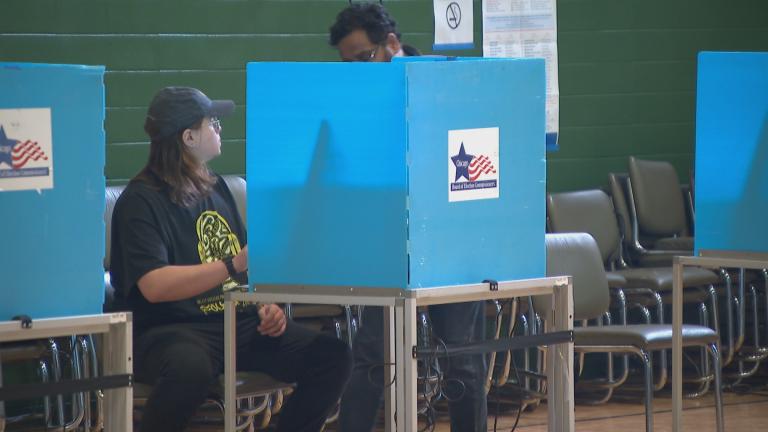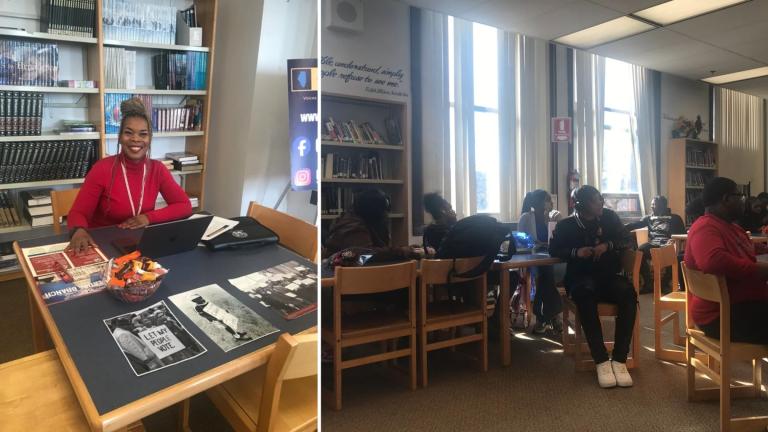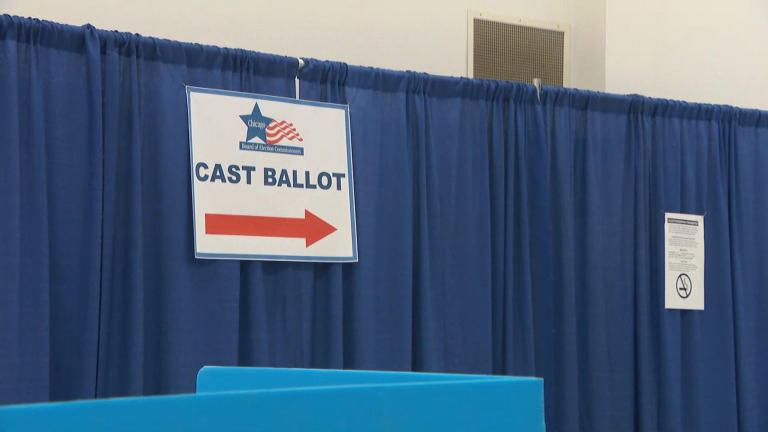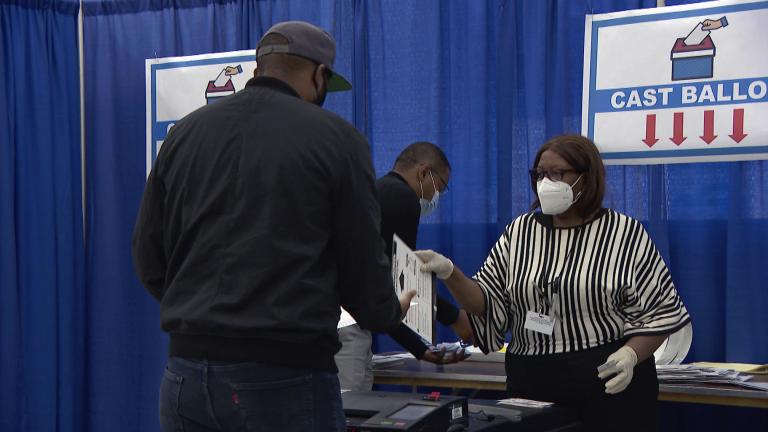In addition to casting their votes for political candidates this election, Chicagoans are making their voices heard on political ideas, from what constitutes fair taxation to how we approach sustainable development — all via ballot referenda.
The graduated tax amendment on the Illinois ballot — also known as the “fair tax” amendment — has garnered interest across the state, including in Chicago’s immigrant communities.
City Bureau civic reporting resident Alex Arriaga has been reaching out to members of those communities and the advocates who work on their behalf.
“What we’re hearing is not only do a lot of the networks that they serve make less than $100,000, so they will not see their income tax increase,” Arriaga said. “But they also rely a lot on social services that would benefit from increase in revenue coming in from those who may end up paying higher taxes.”
Arriaga says there are other states with questions of taxation on their ballots to watch.
“States like Alaska, Arkansas and Colorado have similar ballot measures. Earlier this year, last month, New Jersey passed a tax on millionaires; the ballot measure in Arizona is to tax those who make over $250,000 to ensure adequate funding for public education, so those will be some interesting ballot measures to watch, similar to Illinois,’” Arriaga said.
One of the nonbinding Chicago referenda asks if the city should “act to ensure that all the city’s community areas have access to broadband internet.” City Bureau reporting fellow Lynda Lopez says that while the city and state have rolled out plans to offer free broadband access to low-income residents, there are still some people left behind.
“A recent report by Kids for Chicago and the Metropolitan Planning Council showed that about one in five children in Chicago under the age of 18 lack access to broadband, particularly Black and Latinx children,” she said.
And like the question of taxation, Lopez says there are a few other cities that are exploring the idea of municipal broadband.
“I think especially with COVID transitioning so much of what we used to do in the workplace … I think [public internet access is] a big part of the conversation,” Lopez said. “Other cities, other states are looking at how to increase access, like earlier this year Seattle released a report called ‘Internet for All’ that tried to outline different recommendations to increase access, and California is also looking at how to get the agencies to speed up the process of how they are providing access to residents across the state.”
Another nonbinding question introduced by 29th Ward Ald. Chris Taliaferro asks whether the city should restrict the sale or possession of assault weapons.
South Side Weekly editor-in-chief Jackie Serrato says that since similar questions have been proposed in the past, she’s unsure of what the City Council should expect from this question.
“One thing that we should keep in mind is that even though most progressives might vote yes on this referendum, there are some progressives of color who are taking a pause. They understand that criminalization around gun ownership disproportionately affects Black and Brown residents because of the way that it is enforced inequitably,” Serrato said.
“Even though we know that weapons are crossing state lines into Chicago from Indiana and surrounding states, there isn’t the same energy to stop gun trafficking and even prosecute straw buyers,” Serrato said.








